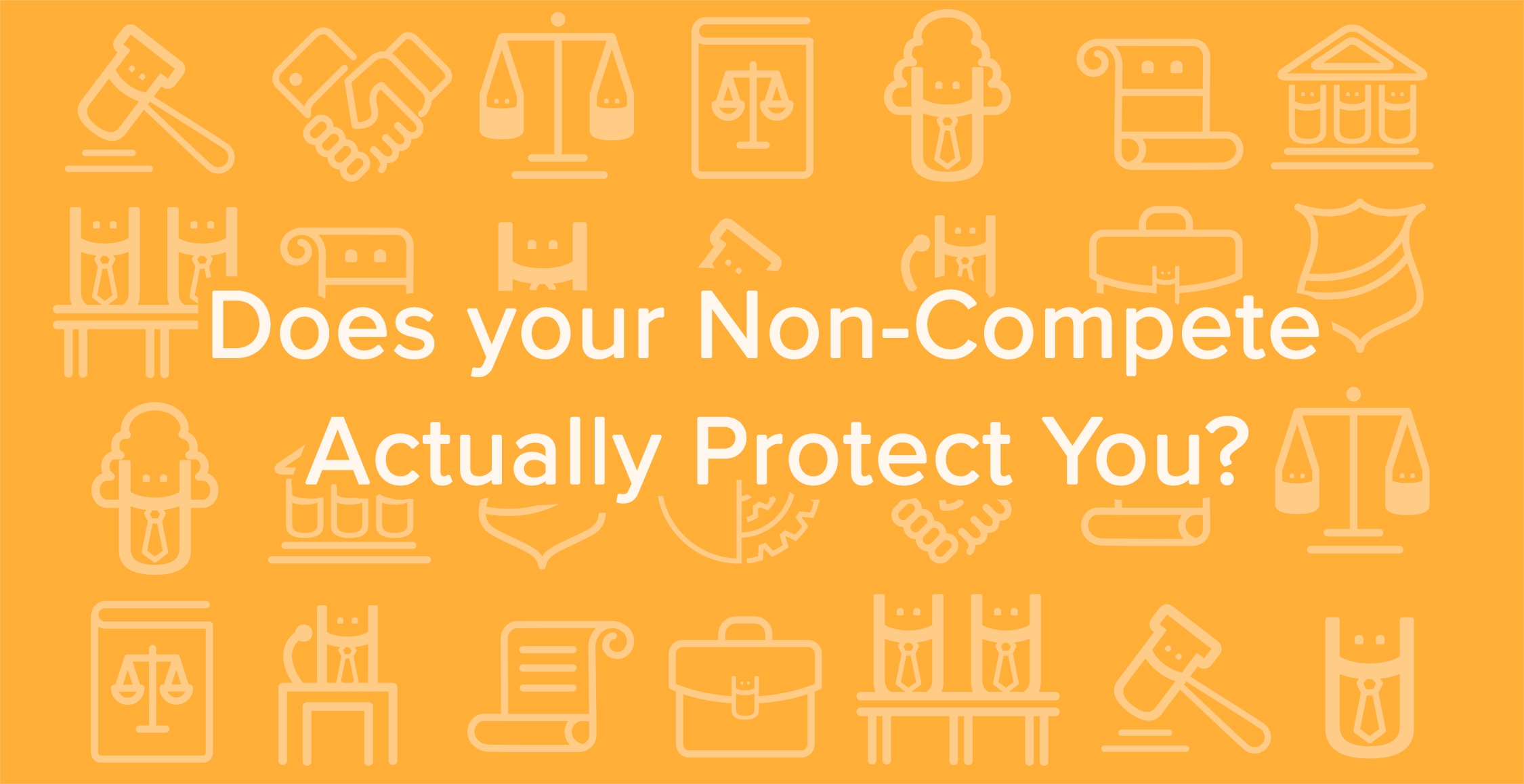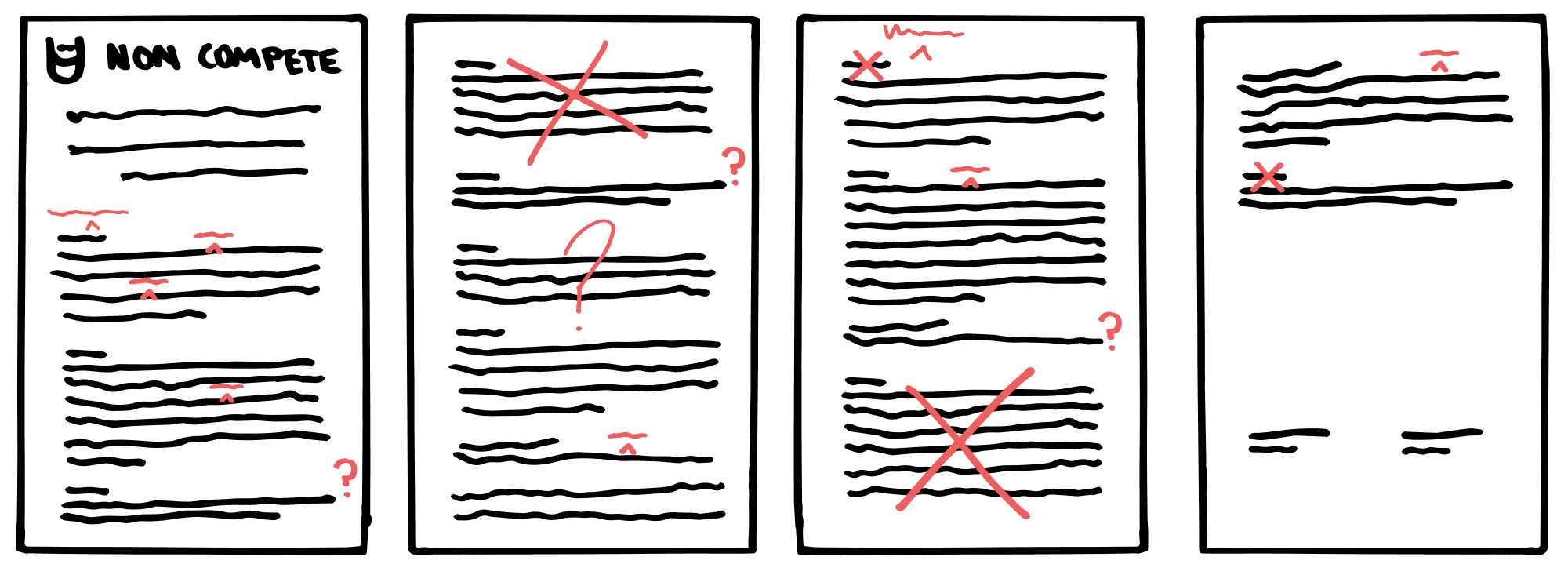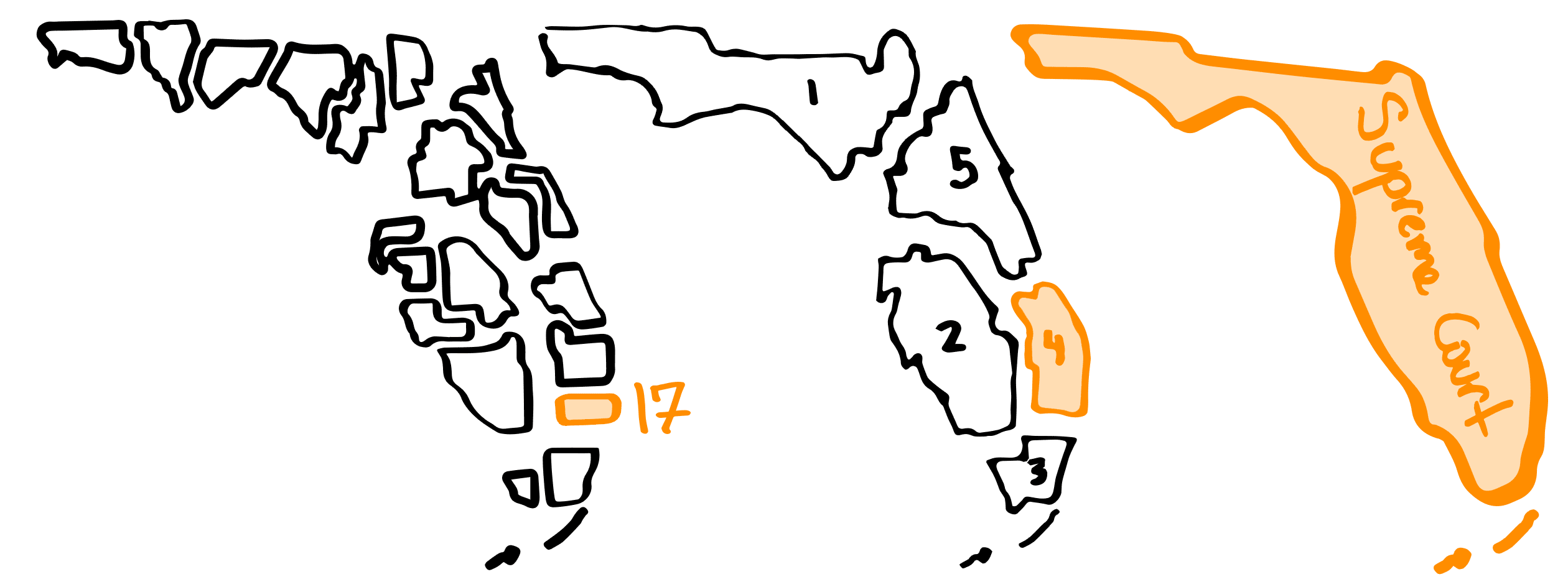
Does your Non-Compete Actually Protect You?
Disclaimer: This article is provided for informational purposes only, and is not a source of legal advice.
If you think your Non-Compete Agreement protects you, more likely than not you're wrong. State laws change often, yet most businesses have contracts that are several years old. Making matters worse, is the modern trend of template websites offering cheap generic contracts. Many small businesses and new attorneys rely on cheap or free templates while not appreciating the potential legal consequences.
Sometimes these templates are better than nothing and sometimes they aren't. When starting a business, a template may seem like the only choice. However, templates mostly serve to provide you with a sense of false confidence. Usually leaving you with a contract that may prove very difficult or even impossible to enforce when the time comes. Non-compete agreements are no exception.
We recently had to redo our Non-Compete. We hope that sharing our experience will help you understand how complex these types of agreements can be.
The LinkedIn Revelation
Our social coordinator recently created a project to assist our Account Executives with LinkedIn. The goal was to help our sales department keep in touch, follow-up in a personal manner, and expand their professional network. But what happens if we part ways?

We don't mind expanding their LinkedIn network. We also don't mind letting them use their new connections for future employment. Expanding business connections is what LinkedIn is for. Yet, what if one of our employees were to walk off with a large chunk of our client list embedded into their LinkedIn and give it to one of our competitors? Is there anything we can do to try to prevent that?
USB Memory Direct has been in the promo industry for over 12 years. As a company that has existed for over a decade, we have a large book of repeating business. Further, it's important to note that our Account Executives only work with inbound leads and our existing book of business.
This book of business, our tremendous marketing efforts, and our goodwill are not things we want to hand over to a competitor.
Our Old Non-Compete
On my first day working as General Counsel for USB Memory Direct, like every other employee, I filled out our old employment contracts--including our former non-compete agreement. I could immediately tell the contracts were likely re-purposed generic templates. The worst part was that this monstrosity--in form and function--was not free.
Just a few years ago, a former employee actually stole some of our clients to start his own competing business. Let me tell you, nothing works better than a case of corporate theft to make you suddenly aware of your legal exposure. At the time, USB Memory Direct's management wished that employee luck, then hired an attorney to prevent this in the future.
Though getting a lawyer was the right step, this one was not experienced in our industry. And, while we cannot say with certainty that this attorney used a generic template, certain aspects of the agreement strongly suggest that they did. Instead of drafting the agreement with custom-tailored restrictions, the attorney used generic clauses. Why? Maybe the lawyer found inspiration from the spork?
Templates: The Sporks of Contracts

You may be asking: What's the beef with sporks? Well, unfortunately the law doesn't like sporks. Sporks, much like templates, are created to be multifunctional. Instead of having one specific function, these "tools" serve a multitude of situations. Yet, they are rarely ever the best tool for the job. Can you eat pasta with a spork? Sure, but a fork may save you a bit on your dry cleaning bill.
Templates can be equally messy. Without concise and specific terms, templates usually force the Courts to interpret messy generic clauses and apply them to your case. True, cheap templates may save you money at first, but they will cost you much more when the time comes to enforce them.
As with most lessons in business, we learned ours the hard way when we had yet another employee who opened their own competing business. To make matters worse, this employee solicited and stole our existing clients, as well as one of our employees. Although we knew the evidence in our case was strong, having the right kind of evidence is only half of the battle.
Even if you possess the equivalent of a smoking gun proving someone did a particular act, you will still need to establish that the act was wrong. In other words, you must establish that what the person did goes against some pre-existing legal or contractual duty. Further, you must put forth evidence that this person was either obligated to or agreed to undertake this duty. Of course, you can try to stumble through that process and attempt to establish these things on the fly in court, or you could opt to address these issues, in advance, with a solid contract that is based on your State's laws and drafted specifically for your particular type of business.
Our contract, as is the case with most generic contracts, did not do a good job of protecting us in advance. So, it should come as no surprise to you to learn that this employee, without the help of an attorney of his own, was able to successfully circumvent our non-compete agreement, despite the fact that we had hired an attorney.
Toto, we're not in the 17th circuit anymore...
In Florida, generally speaking, a non-compete agreement may be enforceable if it is considered reasonable in three aspects. First, how long it restricts the competition. Second, the location or area where it restricts the competition to. Finally, what line of business it restricts competition in.
Florida also requires proof of at least one "legitimate business interest" to justify your non-compete agreement. Florida Statute Section 542.335 lists business interests recognized by our Courts. If your interest is not listed in the statute, do not fear... yet. The statute is only meant to represent a non-exclusive list of examples. In the end, the Courts will decide whether your "business interest" qualifies based on the specific facts and circumstances of your case. Even though there may not be any hard and fast rules, often times there are Court opinions issued involving circumstances similar to yours.
While that may seem simple, we all know the law rarely is. The Florida Courts are organized into 20 circuits, divided into 5 District Courts of appeal, and finally the Florida Supreme Court. Think of it as a pyramid with the Florida Supreme Court on top, the District Courts of Appeal in the middle, and Circuit Courts at the bottom.

If the Florida Supreme Court issues an interpretation of law, all the lower Courts must follow and apply it. In turn, when a District Court of Appeals issues a ruling, all the Circuit Courts under it must follow and apply that ruling.
In other words, if you move your business across county-lines, there's a chance you may find yourself subject to the rulings of a different Court. Meaning, that this new Court may have an interpretation of the law that varies from the one your attorney relied on to draft your contract.
Total Recall: Our New Agreement
When it comes down to it, what our company needs to protect in our LinkedIn project is our book of repetitive business. Fortunately for us, Florida Courts, and the Courts that govern the area where our business is located, have favored protecting that exact business interest--clients who have entered into agreements to do business with us in the future.
We recently created a new non-compete specific to our needs. The new agreement limits our sales department from soliciting our repeat clients, starting a competing business, and stealing our employees. Each restriction is for the duration of their employment, and for one year after parting ways.
If you think a year of protection is nothing, or unfair for your business, we disagree. In fact, so do many Florida Courts. In most circumstances, one year is more than enough time for a company to convince a client that it wasn't only one representative that was awesome. If they can't, they don't deserve to keep the business.
Competition drives ingenuity, better service, and better products. Companies have to find ways to be better to stay in business. People have to find ways to do better to get the right job. That's why Florida policy-makers lean towards disfavoring enforcement of broad non-compete provisions.
So, What Have We Learned?
First, make sure your contracts are up to date with the current laws. Not only do laws--and the Courts' interpretations of laws--change, but they can also vary depending on what county you are in! Today, less is usually more when it comes to non-competes in Florida. But, who knows, in a couple years, the laws could get more or less permissive.
Second, possessing regular business knowledge and skimming the law (or an article on the law) is not enough. You need a lawyer to determine if your "business interest" meets the requirements for protection under the law. The lawyer needs to research interpretations issued by your Circuit Court and the District Court of Appeals above it.
Further, unless the attorney works with your exact type of business often, make sure they asks a lot of questions. A generic contract is not worth the paper it's written on. Attorneys are here to guide you through what you don't know: the law. If your attorney has not worked with many businesses in your industry, you need to guide them through what your business entails. A competent non-compete attorney will not hesitate to work together with you to find out exactly what you need to protect.
Lastly, if you can afford it, get a second opinion. Attorneys are paid to think and do things on people's behalf in a diligent, informed, and responsible manner. That doesn't mean we aren't human and don't make mistakes. Think of attorneys as doctors for your business. If you had a serious health concern would you only seek the advice of one doctor?
If you still aren't convinced that the law isn't simple, remember there are many things this article has not discussed that can affect you and your business. You have your federal laws, Federal Court interpretations, agency opinions, city ordinances, regulations, the intent of the legislature, state policy, federal policy, and the United States Constitution--just to list a few...
When considering everything I wrote, I hope it leads you to the correct answer: if your business has something you want or need protected, you should go to an attorney with experience in the appropriate field. The information in this article is not intended to be a substitute for legal advice, especially legal advice that is tailored to your particular issue.